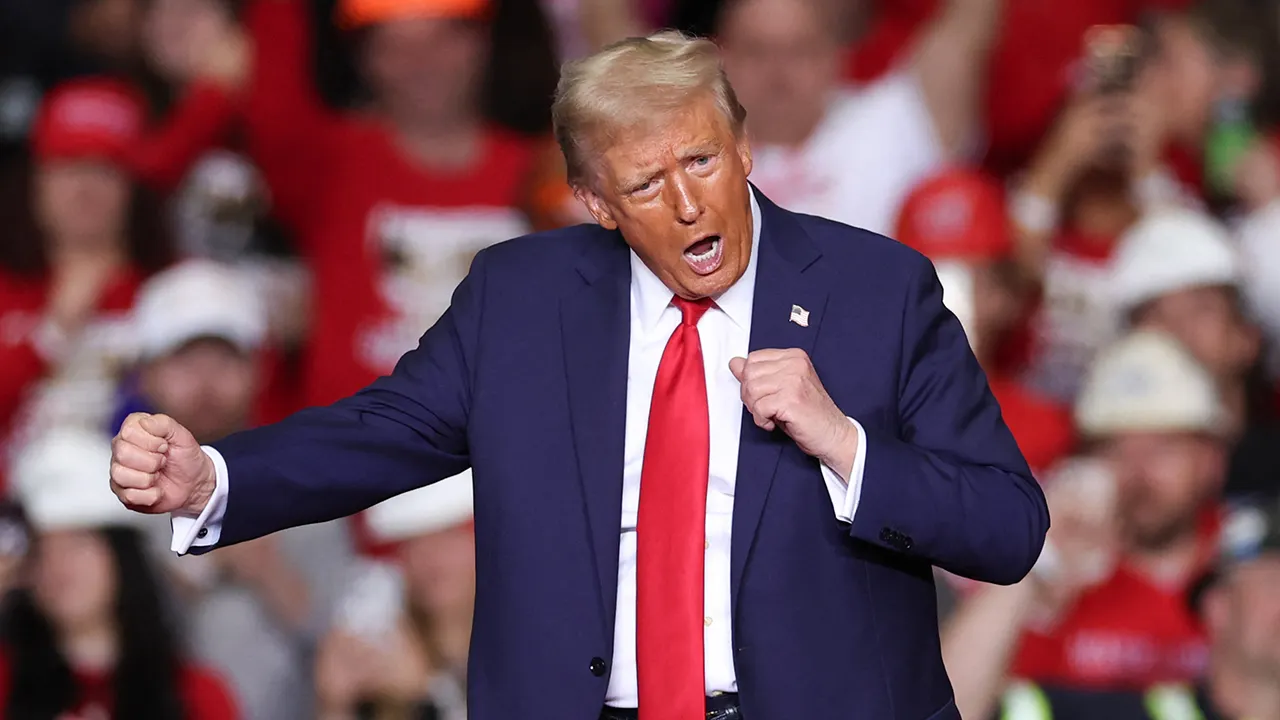When journalist Sophia Xueqin Huang ran afoul of the Chinese Communist Party, she subsequently noticed that a camera was placed directly outside the window of her apartment in Guangzhou City. Ms. Huang had incurred the ire of the government for reporting on sexual harassment.
Nor was the state happy when she followed up with articles about Wieping Chang, the lawyer who volunteered his services when she was sued for libel. Perching herself directly in front of the camera’s purview on a daily basis, she read aloud passages from George Orwell’s “1984.” Ms. Huang had a point to make.
At the risk of spoiling the new documentary from Jialing Zhang, “Total Trust,” the CCP did take Ms. Huang’s point and acted upon it in a way that is, alas, just as you’d imagine from an authoritarian state. The young journalist is among the handful of Chinese citizens at the core of a documentary about a here-and-now dystopia, of a land and people prey to governmental overreach.
“Total Trust” follows up on Ms. Zhang’s previous films “One Child Nation” (2016), co-directed with Nanfu Wang, and “In the Same Breath” (2021), an overview of the Chinese state’s response to Covid. Given the critical tenor of these pictures, the CCP hasn’t looked kindly upon our filmmaker. The state has pegged Ms. Zhang “a person of special interest” and banned her from returning to Communist China. “Total Trust” won’t endear Ms. Zhang any further to the powers-that-be back home.
When a Berlin-based production company, Filmtank, approached Ms. Zhang about making a picture about the increasing capabilities by which states can monitor their populations, the decision to focus on China seemed a no-brainer. Still, the filmmaker is adamant about the “growing threat to individual freedom posed by surveillance systems all over the world.”
After watching “Total Trust,” you have to wonder if there’s any additional room in which the surveillance state in China can grow. The instantaneity with which the CCP reacts to social media posts it deems objectionable is daunting enough, but its ability to intervene in the most mundane of activities — buying flowers, say — is frightening. In the end, the story Ms. Zhang presents is not far removed from a typical episode of the Netflix series that is the digital age’s answer to “The Twilight Zone,” “Black Mirror.”
Along with Ms. Huang, “Total Trust” focuses on the wife of Mr. Chang and mother of their son Tutu, Zijuan Chen, along with Li Wenzu and her son Quanquan. The latter have only recently been reunited with a lawyer who was jailed and tortured for his role in the “709 Crackdown,” the government’s quashing of human rights activists, Wang Quanzhang. For his troubles, Mr. Quanzhang not only has a contentious relationship with his son Quanquan, but the family is held in deep suspicion by the neighbors.
Among the film’s scariest moments is when Mr. Quanzhang attempts to take Quanquan to school only to be stopped at his front door by a cadre of unspecified government officials. These functionaries offer to take the boy to school, but Ms. Wenzu and Mr. Quanzhang won’t hear of it. They slam the door in their faces.
Whereupon the family keeps track of what’s happening directly outside the apartment using a peephole camera they’ve mounted on the front door. The “guardians” with their white outfits and masks — filming took place during lockdown — hunker down outside the couple’s door for days, perhaps longer. At a certain point, the officials cover the family’s viewfinder thereby obscuring what little vantage point is to be had. The scene is chilling.
How did Ms. Zhang, who is now ensconced in the United States, manage to film the footage in China? She worked with in-country activists, training them in filming techniques and communicating with them through means that would be the envy of the most seasoned expert in espionage: encrypted messages, code names, untraceable phones, and goodness knows what else.
A nagging question persists: what effect might Ms. Zhang’s efforts have for its participants? At one particularly tense point during the picture Ms. Chen gets into an argument with her father-in-law about the relative worth of sticking out one’s neck. Is it worth being ostracized by friends and neighbors and suffering governmental persecution? Dad thinks it isn’t. Ms. Chen dismisses him as a party hack.
According to the director, each of the protagonists in the film felt it was their responsibility to put themselves and their families at risk in order to heighten the awareness of the dangerous capabilities of a high tech state. Let’s hope the benefits accrued from this venture outweigh the dangers it could set into motion. “Total Trust” disturbs in more ways than one.

















Discussion about this post